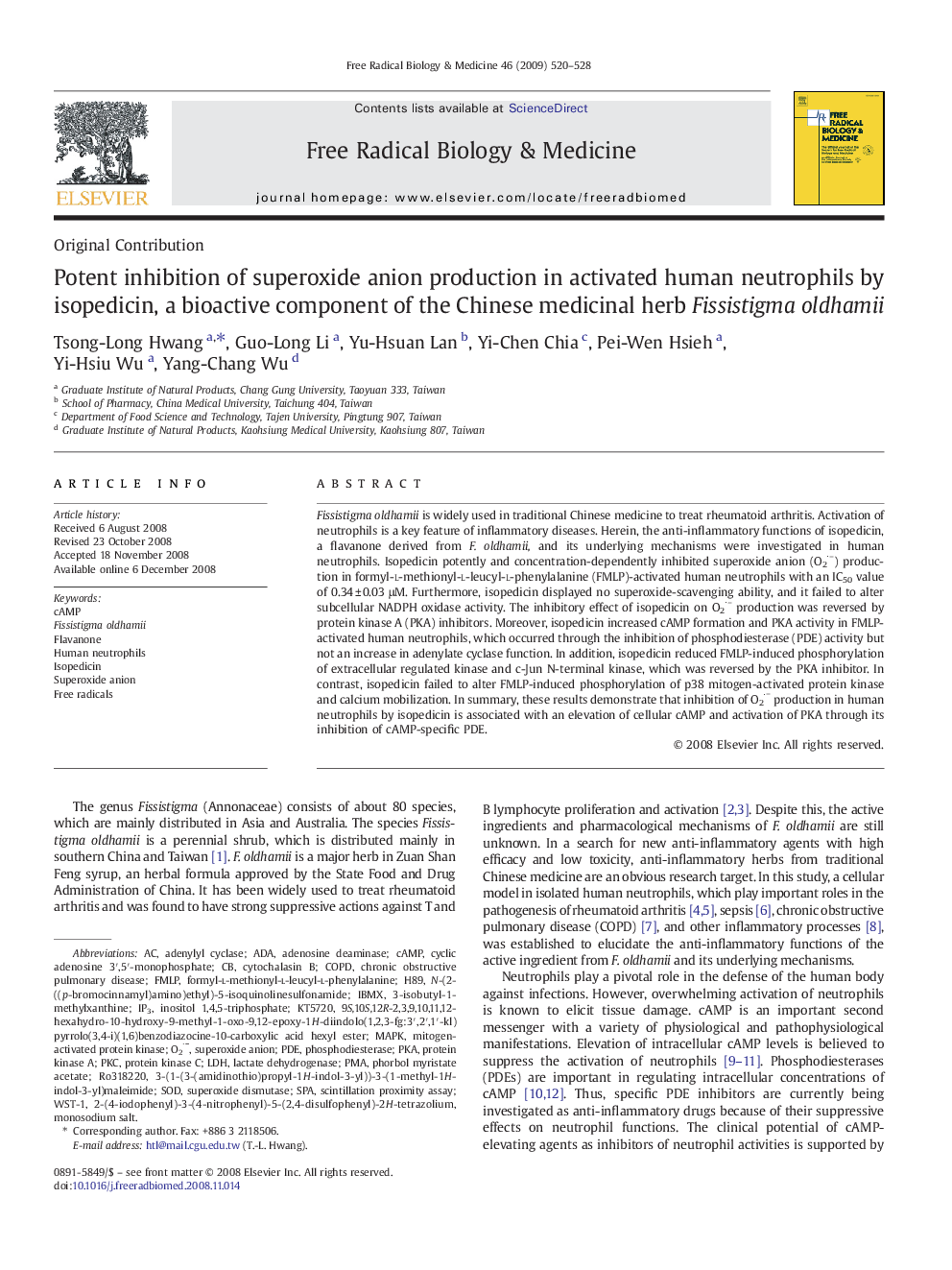| Article ID | Journal | Published Year | Pages | File Type |
|---|---|---|---|---|
| 1910319 | Free Radical Biology and Medicine | 2009 | 9 Pages |
Fissistigma oldhamii is widely used in traditional Chinese medicine to treat rheumatoid arthritis. Activation of neutrophils is a key feature of inflammatory diseases. Herein, the anti-inflammatory functions of isopedicin, a flavanone derived from F. oldhamii, and its underlying mechanisms were investigated in human neutrophils. Isopedicin potently and concentration-dependently inhibited superoxide anion (O2−) production in formyl-l-methionyl-l-leucyl-l-phenylalanine (FMLP)-activated human neutrophils with an IC50 value of 0.34 ± 0.03 μM. Furthermore, isopedicin displayed no superoxide-scavenging ability, and it failed to alter subcellular NADPH oxidase activity. The inhibitory effect of isopedicin on O2− production was reversed by protein kinase A (PKA) inhibitors. Moreover, isopedicin increased cAMP formation and PKA activity in FMLP-activated human neutrophils, which occurred through the inhibition of phosphodiesterase (PDE) activity but not an increase in adenylate cyclase function. In addition, isopedicin reduced FMLP-induced phosphorylation of extracellular regulated kinase and c-Jun N-terminal kinase, which was reversed by the PKA inhibitor. In contrast, isopedicin failed to alter FMLP-induced phosphorylation of p38 mitogen-activated protein kinase and calcium mobilization. In summary, these results demonstrate that inhibition of O2− production in human neutrophils by isopedicin is associated with an elevation of cellular cAMP and activation of PKA through its inhibition of cAMP-specific PDE.
